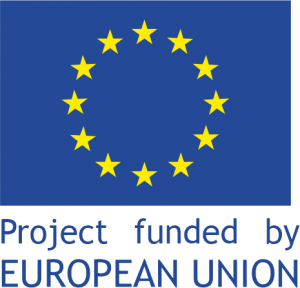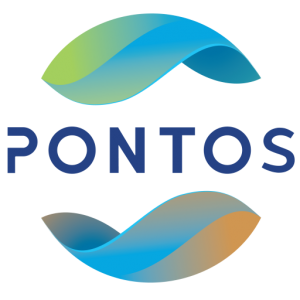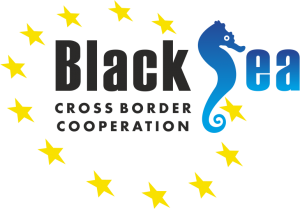Several online events organized by the Regional Centre for Integrated Environmental Monitoring (RCIEM) of the Odessa National I.I. Mechnikov University (ONU) took place in July 2022 in the framework of the Copernicus Assisted Environmental Monitoring Across the Black Sea Basin (PONTOS) Project funded by the European Union’s ENI CBC Black Sea Basin Programme 2014-2020.
On July 20, the Joint Open Workshop in Odessa was attended by 60 participants. In this event, the PONTOS consortium updated the stakeholders on the overall project progress in four participating countries (Armenia, Georgia, Greece, and Ukraine) and presented the preliminary results.
The workshop was opened by Prof. Volodymyr Ivanytsya, the ONU Vice Rector. He welcomed the participants on behalf of the Rector, Prof. Vyacheslav Truba. “I hope,” Prof. Ivanytsya said, “that today’s and upcoming PONTOS events will be of interest to a wide circle of participants – representatives of the scientific community, authorities, sectoral agencies, NGOs – and that the project data on the current environmental challenges will be helpful in the post-war sustainable restoration of the country.”
The next speaker, Aghavni Harutyunyan, Project Manager of the PONTOS project from the American University of Armenia (AUA), also greeted the participants and presented general information on the project – its goals, outcomes, partners, pilot areas in all partner countries, overall and specific objectives and the expected results.
During the session dedicated to the PONTOS activities, the project partners were told about the preliminary results of the assessments performed in the pilot areas. A report on the dynamics of coastal line changes assessment in Greece, Georgia and Ukraine were presented by Dr. Konstantinos Zachopoulos, DUTH, Greece. Assessment of the forest cover changes and their consequences on the environment performed in Armenian and Georgian pilot areas was covered by Dr. Irakli Matcharashvili, GRAL, Georgia. Assessment of changes in wetland and floating vegetation cover was described by Dr. Sergiy Medinets, ONU, Ukraine. Assessment of Chl concentration and eutrophication dynamics was presented by Dr. Garabet Kazanjian, AUA, Armenia. Agricultural water balance, water productivity, and water stress indices were covered by Dr. Ioannis Tsakmakis, DUTH, Greece.
The next session was dedicated to presentations of partner organizations (BSB projects implemented in the Ukrainian pilot).
– IASON Project (BSB 1121): monitoring of Invasive Alien Species (IAS) in the Danube Delta and risk assessment presented by Dr. Mykhailo Son, Institute of Marine Biology (National Academy of Sciences of Ukraine).
– Dr. Valeriy Lebid and Dr. Kateryna Vasutunska from the Odesа Polytechnic National University (Ukraine) presented the LeNetEco2 (BSB 1088) Project – Establishment of Learning Network for the consolidation effort of joint environmental control and monitoring in the Black Sea Basin.
– Next presentation was dedicated to the Protect-streams-4-Sea Project (BSB 963) made by Dr. Ilia Trombitsky, Executive Director of the Eco-TIRAS International Association of River Keepers Moldova.
– Last but not least came the presentation on the ANEMONE Project (BSB 319): Results of the project in the Ukrainian part of the Black Sea delivered by Yuriy Denga of the Ukrainian Scientific Centre of the Ecology of Sea, Odessa.
The Joint Open Workshop was wrapped up by Dr. Sergiy Medinets, who thanked all the speakers for their comprehensive presentations and words of support for the Ukrainian people. Despite all the challenges, he said, from Covid-19 to the full-scale invasion of Russia to Ukraine, the project has already produced many valuable results and will be completed successfully and on time.
The Local Open Workshop in Odessa took place on July 21, 2022. In this event, the team from Odessa National I.I. Mechnikov University, the Ukrainian partner of the PONTOS project, presented in more detail the preliminary results of the four regional assessments performed in the Ukrainian pilot area:
- Coastline changes (Prof. Evgen Cherkez)
- Dynamics of chlorophyll concentration and eutrophication (Dr. Volodymyr Medinets)
- Changes in aquatic vegetation cover (Dr. Sergiy Medinets)
- Agricultural water balance (Dr. Sergiy Medinets)
The same day afternoon, on July 21, one more online workshop was organised, the Local event for the familiarization with the PONTOS platform in Odessa. During this event, the PONTOS team presented to the participants a fully-operated beta-version of the interactive PONTOS Platform developed within the project. The capacities of the three modules of the Platform are shown in the example of the Ukrainian pilot site. The participants gained practical hands-on experience on how to effectively and efficiently use the Platform as they had a chance to repeat after the speakers using their laptops or smartphones. The participants asked questions and made their suggestions.
The Open Data Cube and Web Application modules were presented by Eleftherios Katsikis (CERTH) and the Web GIS module by Dr. Nikolaos Kokkos (DUTH).
The participants of all three events showed their high interest in the project results and asked many questions about the practical implementation. In particular, all the participants appreciated the PONTOS platform’s possibilities and convenience and expressed their willingness to use it in their daily work.
On the 26 and 27 of July 2, Training Session on Earth Observation (EO) and Environmental Monitoring for Young Scientists and Practitioners in Odessa was held online. Forty-three participants attended the training. The event was opened by Dr. Sergiy Medinets (ONU), who greeted the participants willing to increase their knowledge and skills in space image processing. Even Gazetov, the ONU senior researcher, for two days telling the participants different ‘secrets’ and ‘peculiarities’ of using the EO, from the basic knowledge required to work with the PONTOS interactive platform and the data portals Copernicus Open Access Hub and Sentinel Hub to the advanced ins and outs of chlorophyll concentration calculations using the Sentinel Application Platform (SNAP) instrument and basics of images processing using Semi-automatic Classification Plug-in (SCP) based on a machine learning algorithm.
EO is a source of objective information to monitor the environment. It can raise the stakeholder’s awareness of its state significantly, especially in the Black Sea Basin countries, in most of which the in-situ environmental monitoring networks are either still underdeveloped or not extensive enough. The training has demonstrated the EO’s daily use’s great potential for almost everyone, from a student to a regional authority representative.
The participants expressed their deep gratitude to the PONTOS team for the work done and the knowledge shared on the primary and contemporary methods of space image processing. They expressed their great interest in further training on the EO data used for environmental monitoring.
Training materials and video recordings of all the events will be made available for the general public soon on the CBC BSB PONTOS Project official website.
The Ukrainian version of the article can be viewed with the following link.


